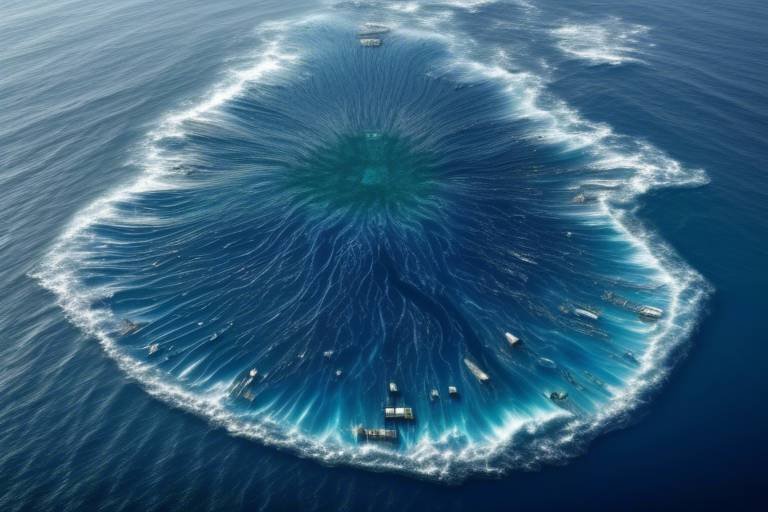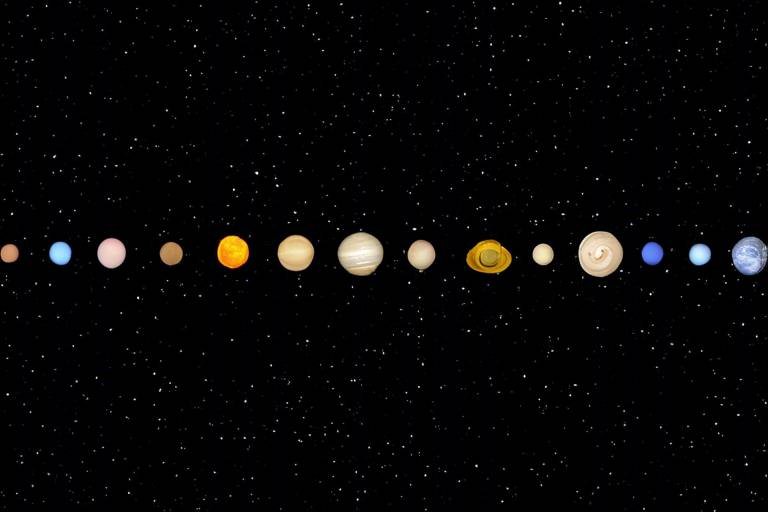An Insight into Oceanography with the Philosophy of Science
Oceanography, the study of the ocean and its myriad complexities, is a field that extends far beyond mere waves and currents. It is a vibrant tapestry woven with threads of biology, chemistry, physics, and even philosophy. This article explores the intersection of oceanography and the philosophy of science, highlighting how philosophical frameworks shape our understanding of oceanic systems and their complexities. Just as the ocean is deep and vast, so too are the questions it raises about our existence and our place within this blue planet. Are we mere observers of these ecosystems, or are we active participants in their unfolding stories? In the following sections, we will dive into the nature of oceanographic inquiry, the philosophical foundations that underpin this science, and the ethical responsibilities that come with such profound knowledge.
Understanding the fundamental principles of oceanographic research is crucial. This section examines the methodologies and epistemological questions that guide scientists in their exploration of oceanic phenomena. Oceanography is not just about collecting data; it is a rigorous inquiry into the mechanisms that govern marine environments. Scientists employ various methodologies, from field studies to laboratory experiments, to gather insights about the ocean's behavior. But what drives these inquiries? Is it pure curiosity, or is it the urgent need to address pressing global challenges such as climate change and biodiversity loss? The answers to these questions reveal the motivations behind oceanographic research and the philosophical underpinnings that shape it.
Oceanography is not just a science; it is grounded in philosophical thought. Here, we discuss the philosophical underpinnings that influence oceanographic theories and practices. At its core, oceanography grapples with fundamental questions about the nature of knowledge and reality. What do we truly know about the ocean? How do we validate our findings? These questions lead us into the realm of epistemology, where the study of knowledge intersects with ocean science.
Epistemology, the study of knowledge, plays a significant role in oceanography. This subsection delves into how oceanographers acquire knowledge and the implications of their findings. Knowledge in oceanography is not static; it evolves as new discoveries are made and old theories are challenged. For instance, consider the transition from the belief in a static ocean to the understanding of dynamic ecosystems. This shift not only changed scientific perspectives but also influenced conservation strategies and policy-making.
Observation is key in oceanographic research. This part explores how scientific observation shapes our understanding of oceanic processes and contributes to knowledge creation. The ocean is a complex system, and without careful observation, our understanding would be limited. Oceanographers utilize various observational techniques, from satellite imagery to deep-sea submersibles, to gather data. Each method has its strengths and weaknesses, making it essential for researchers to choose the right approach for their specific inquiry. The act of observing itself raises philosophical questions: What does it mean to observe? How does observation influence our understanding of reality?
Advancements in technology have transformed oceanography. Here, we discuss how innovative tools enhance our observational capabilities and reshape theoretical frameworks. The advent of autonomous underwater vehicles (AUVs) and remote sensing technology has revolutionized the way we study the ocean. These tools allow scientists to explore previously inaccessible areas, leading to groundbreaking discoveries. However, with these advancements come new philosophical questions: Does technology enhance our understanding, or does it create a distance between us and the natural world? As we rely more on machines, we must consider the implications for our relationship with the ocean.
Ethical considerations are vital in oceanography. This section addresses the moral responsibilities of scientists and the implications of their research on marine ecosystems. As we delve deeper into the ocean's mysteries, we must also confront the ethical dilemmas that arise. For example, how do we balance scientific exploration with the conservation of marine habitats? Oceanographers are increasingly called upon to consider the environmental impacts of their research. This awareness is not just a scientific obligation but a moral one, as the health of our oceans is intrinsically linked to the well-being of our planet.
Oceanography intersects with various disciplines. This section highlights the importance of integrating insights from biology, chemistry, and physics to advance our understanding of the oceans. The ocean is a complex system, and no single discipline can fully address its challenges. By collaborating across fields, scientists can develop a more holistic understanding of ocean processes. This interdisciplinary approach not only enriches research but also fosters innovation, leading to new methodologies and insights.
Collaborative efforts among scientists from different fields enrich oceanographic research. We explore successful interdisciplinary projects and their contributions to ocean science. For instance, projects that combine marine biology with climate science have led to significant advancements in understanding how climate change impacts marine ecosystems. These collaborations illustrate that the ocean's complexities require a multifaceted approach, where diverse expertise comes together to tackle pressing issues.
While collaboration is beneficial, it also presents challenges. This part discusses the barriers to effective interdisciplinary communication and how they can be overcome. Different disciplines often have their own jargon and methodologies, which can create misunderstandings. To foster effective collaboration, scientists must be willing to bridge these gaps, fostering a culture of open communication and mutual respect. Addressing these challenges is essential for the future of oceanographic research, as the ocean's health depends on our ability to work together.
Looking ahead, the future of oceanography is promising yet complex. This section examines emerging trends, challenges, and the philosophical implications for the next generation of oceanographers. As we face unprecedented changes in our oceans due to climate change, pollution, and overfishing, the role of oceanographers becomes increasingly vital. The next generation must not only be equipped with scientific knowledge but also with a strong ethical framework to guide their research. The philosophical questions surrounding our relationship with the ocean will continue to evolve, challenging future scientists to think critically about their work and its impact on the world.
- What is oceanography? Oceanography is the study of the ocean, including its ecosystems, currents, and the physical and chemical properties of seawater.
- Why is philosophy important in oceanography? Philosophy helps frame the questions we ask about the ocean, guiding our scientific inquiries and ethical considerations.
- How do technology advancements impact oceanography? New technologies allow for more detailed observations and data collection, enhancing our understanding of ocean processes.
- What are the ethical responsibilities of oceanographers? Oceanographers must consider the environmental impact of their research and strive to protect marine ecosystems.

The Nature of Oceanographic Inquiry
Understanding the fundamental principles of oceanographic research is crucial for anyone interested in the vast, mysterious world beneath the waves. Oceanography isn't just about collecting data; it's about asking the right questions, forming hypotheses, and utilizing a variety of methodologies to unravel the complexities of oceanic systems. Imagine trying to solve a puzzle where the pieces are constantly shifting and changing shape—that's what oceanographers face every day!
At its core, oceanographic inquiry is driven by a blend of curiosity and rigorous scientific methodology. Oceanographers utilize a range of techniques, from field studies and remote sensing to laboratory experiments, to gather data about oceanic phenomena. This multifaceted approach allows scientists to explore everything from the chemical composition of seawater to the behavior of marine organisms. The methodologies employed can be categorized into several key areas:
| Methodology Type | Description |
|---|---|
| Field Studies | Direct observation and data collection in natural ocean environments. |
| Remote Sensing | Using satellite and aerial imagery to analyze large-scale oceanic patterns. |
| Laboratory Experiments | Controlled experiments to understand specific oceanic processes. |
| Modeling | Using mathematical models to simulate ocean behaviors and predict future changes. |
These methodologies are not just tools; they are the lenses through which we observe and interpret the ocean's intricate systems. For instance, field studies allow scientists to witness firsthand the dynamic interactions between marine life and their environment. In contrast, remote sensing provides a broader perspective, revealing patterns that might go unnoticed in localized studies. Each methodology contributes uniquely to our understanding, emphasizing the importance of a comprehensive approach to oceanographic inquiry.
However, the journey of oceanographic research is not without its epistemological questions. How do we know what we know about the oceans? What constitutes valid knowledge in this field? These questions push oceanographers to continually refine their methods and challenge existing theories. The philosophy of science plays a critical role here, guiding researchers in their quest for understanding while also prompting them to reflect on the implications of their findings. This interplay between methodology and philosophy is what makes oceanography not just a science, but a deeply philosophical endeavor.
In conclusion, the nature of oceanographic inquiry is a rich tapestry woven from diverse methodologies, philosophical questions, and the ever-evolving quest for knowledge. As we dive deeper into the ocean's mysteries, we are reminded that every discovery opens new doors for inquiry and understanding. The ocean is not just a body of water; it is a vast universe waiting to be explored, understood, and protected.
- What is oceanography? Oceanography is the study of the ocean, including its ecosystems, currents, geology, and chemical composition.
- Why is oceanographic research important? It helps us understand climate change, marine biodiversity, and the health of ocean ecosystems, which are vital for life on Earth.
- What methods do oceanographers use? They use field studies, remote sensing, laboratory experiments, and modeling to gather data and analyze oceanic phenomena.
- How does philosophy relate to oceanography? Philosophy guides the methodologies and epistemological questions in oceanography, influencing how scientists interpret their findings.

Oceanography is a fascinating field that extends beyond mere data collection and analysis; it is deeply rooted in philosophical thought. Understanding the philosophical foundations of oceanography allows us to appreciate the complexities of oceanic systems and the methodologies scientists employ to study them. At its core, oceanography is intertwined with questions about the nature of knowledge, reality, and our place within the marine environment. This intersection raises intriguing questions: How do we know what we know about the ocean? What assumptions guide our research? And how do these philosophical inquiries shape our understanding of oceanographic phenomena?
To delve deeper, we can identify several key philosophical underpinnings that influence oceanographic theories and practices. These include epistemology, ontology, and ethics. Each of these aspects plays a crucial role in shaping how oceanographers approach their research and interpret their findings. For example, epistemology—the study of knowledge—examines the methods and validity of knowledge acquisition in oceanography. This involves questioning the reliability of various observational techniques and the interpretation of data collected from the vast and often unpredictable marine environment.
Moreover, ontology, which deals with the nature of being and existence, prompts oceanographers to consider what constitutes an oceanic system. Is it merely the water and organisms within it, or does it encompass the interactions between these entities and their surroundings? This perspective encourages a more holistic understanding of marine ecosystems, emphasizing the interconnectedness of biological, chemical, and physical processes.
Ethics also plays a pivotal role in oceanographic research. As scientists explore the depths of our oceans, they must grapple with the moral implications of their work. Questions arise about the impact of human activities on marine life and ecosystems. Are we justified in our exploration and exploitation of ocean resources? How can we balance scientific advancement with the need to protect vulnerable marine environments? These ethical considerations are essential for fostering a responsible approach to oceanographic research.
In summary, the philosophical foundations of oceanography provide a framework for understanding the complexities of the oceans and the methodologies employed by scientists. By engaging with epistemological, ontological, and ethical questions, oceanographers can enhance their research and contribute to a more comprehensive understanding of our planet's most vital resource. As we continue to explore the depths of the ocean, it's crucial to remain mindful of the philosophical implications of our discoveries and the responsibilities they entail.
- What is the significance of philosophy in oceanography? Philosophy helps to frame the questions and methodologies used in oceanographic research, providing a deeper understanding of the implications of scientific findings.
- How do ethical considerations impact oceanographic research? Ethical considerations guide scientists in making responsible decisions regarding the exploration and conservation of marine ecosystems.
- What role does technology play in oceanography? Technology enhances observational capabilities, allowing for more accurate data collection and analysis, which is essential for understanding complex oceanic systems.

Epistemology in Ocean Science
When we dive into the depths of ocean science, we are not just exploring the vast blue expanse of water; we are also grappling with profound questions about how we know what we know. This is where epistemology comes into play. It’s the philosophical study of knowledge—how it’s acquired, validated, and understood. In the context of oceanography, epistemology challenges scientists to consider the methods and frameworks they use to gather knowledge about the ocean's complex systems. Are we truly understanding the marine environment, or are we merely scratching the surface?
Oceanographers employ a variety of methodologies to study the oceans. These can range from traditional observational techniques to advanced technological tools. Each method comes with its own set of epistemological implications. For instance, when using satellite imagery to monitor ocean temperatures, scientists must ask themselves: What limitations does this technology impose on our understanding? Are we missing out on critical data that can only be gathered through in-situ observations? This interplay between different methods highlights the importance of a robust epistemological framework in ocean science.
Moreover, the acquisition of knowledge in oceanography is often a collaborative effort, involving interdisciplinary teams. This collaboration enriches the epistemological landscape, as insights from biology, chemistry, and physics converge to form a more comprehensive understanding of ocean systems. However, it also raises questions about the reliability and validity of the knowledge produced. For example, how do we ensure that the data collected by marine biologists aligns with the chemical analyses performed by ocean chemists? This is where clear communication and shared methodologies become essential.
One of the critical aspects of epistemology in ocean science is the role of observation. Observation is not just a passive act; it is an active engagement with the environment. Oceanographers must interpret what they see, often under challenging conditions. This interpretation is influenced by their prior knowledge, theoretical frameworks, and even biases. Therefore, understanding the nature of observation is fundamental to the epistemology of ocean science. It shapes not only the questions scientists ask but also the conclusions they draw from their research.
To illustrate this point, consider the following table summarizing different epistemological approaches in oceanography:
| Approach | Description | Implications |
|---|---|---|
| Empirical Observation | Gathering data through direct observation or measurement. | Relies heavily on the accuracy of instruments and the observer's interpretation. |
| Theoretical Modeling | Using mathematical models to predict ocean behavior. | Can provide insights but may oversimplify complex systems. |
| Interdisciplinary Collaboration | Integrating knowledge from various scientific disciplines. | Enhances understanding but requires effective communication. |
As we navigate through the challenges of understanding the oceans, it becomes clear that epistemology is a vital compass guiding oceanographers. It prompts them to reflect on their practices and encourages a deeper inquiry into the nature of knowledge itself. In the end, the quest for knowledge in ocean science is not just about collecting data; it’s about weaving a rich tapestry of understanding that respects the complexity and beauty of the ocean.
- What is epistemology in ocean science? Epistemology in ocean science refers to the study of how knowledge about ocean systems is acquired, validated, and understood.
- Why is observation important in oceanography? Observation is crucial as it shapes our understanding of oceanic processes and influences the conclusions drawn from research.
- How does interdisciplinary collaboration impact ocean science? It enriches research by integrating diverse insights but also requires effective communication to ensure alignment among different fields.

The Role of Observation
When we think about oceanography, one of the first things that comes to mind is the sheer vastness of the oceans and the myriad of phenomena that occur within them. But how do we actually begin to unravel these mysteries? The answer lies in observation. It’s the cornerstone of scientific inquiry, especially in oceanography, where direct access to the subject matter can be challenging. Imagine trying to understand a massive, swirling vortex from the surface of a calm lake – that’s often what oceanographers face when studying the depths of the sea.
Observation in oceanography isn’t just about looking; it’s about seeing and understanding. It involves a combination of techniques and technologies that allow scientists to gather data about oceanic conditions, currents, and ecosystems. From the simple act of taking water samples to the complex deployment of autonomous underwater vehicles (AUVs), observation methods have evolved tremendously over the years. Here are some key aspects of how observation plays a critical role in oceanographic research:
- Data Collection: Oceanographers rely on various tools, such as buoys, satellites, and submersibles, to collect data on temperature, salinity, and nutrient levels. This data is essential for understanding the physical and chemical properties of ocean waters.
- Long-term Monitoring: Continuous observation allows scientists to track changes over time, helping to identify trends related to climate change, pollution, and biodiversity loss.
- Hypothesis Testing: Observational data helps in formulating hypotheses about oceanic processes, which can then be tested through experiments and further research.
Moreover, the role of observation goes beyond mere data collection. It’s about interpretation and context. For instance, when oceanographers observe a sudden increase in phytoplankton in a particular region, it raises questions about the factors contributing to this bloom. Is it due to nutrient runoff from land? Or perhaps a change in water temperature? These observations lead to further inquiries and deeper understanding of the intricate relationships within marine ecosystems.
In recent years, advancements in technology have revolutionized observational methods in oceanography. The use of remote sensing technology, for example, allows scientists to monitor vast ocean areas from space, providing insights that were previously unattainable. Coupled with machine learning algorithms, these observations can help predict future oceanic conditions and trends, making oceanography not just a study of the past and present, but a crucial tool for anticipating the future.
Ultimately, observation is not just a passive act; it’s an active engagement with the ocean. It requires curiosity, critical thinking, and a willingness to question our assumptions. As we continue to explore the depths of our oceans, the role of observation will remain pivotal, guiding us in our quest to understand one of the planet's most vital resources.
Q1: Why is observation important in oceanography?
A1: Observation is fundamental in oceanography as it allows scientists to gather critical data about ocean conditions, monitor changes over time, and test hypotheses related to marine ecosystems.
Q2: What tools are commonly used for oceanographic observation?
A2: Common tools include buoys, satellites, underwater drones, and research vessels equipped with various sensors to measure temperature, salinity, and other oceanic parameters.
Q3: How has technology impacted oceanographic observations?
A3: Technological advancements, such as remote sensing and autonomous vehicles, have significantly enhanced the ability to collect data over large areas and have improved the accuracy and efficiency of oceanographic research.

The Impact of Technology
In the ever-evolving field of oceanography, technology acts as a powerful catalyst, propelling our understanding of the vast and mysterious oceans. Imagine trying to explore a massive, uncharted territory without the right tools; it would be like navigating a maze blindfolded. Thankfully, advancements in technology have illuminated the depths of our oceans, allowing scientists to uncover secrets that were once thought to be lost to the tides of time.
From remote sensing satellites that capture breathtaking images of oceanic currents to autonomous underwater vehicles (AUVs) that can dive deep into the abyss, technology has revolutionized the way we study marine environments. These innovations not only enhance our observational capabilities but also reshape the theoretical frameworks that guide oceanographic research. For instance, data collected from these sophisticated instruments enable researchers to develop more accurate models of ocean circulation, which are crucial for predicting climate change impacts.
Moreover, the integration of big data analytics allows oceanographers to process vast amounts of information gathered from various sources. By employing advanced algorithms and machine learning techniques, scientists can identify patterns and trends that were previously undetectable. This shift towards data-driven research has opened up new avenues for exploration, making it possible to tackle complex questions about marine ecosystems and their responses to environmental changes.
Consider the following table that illustrates key technological advancements in oceanography:
| Technology | Application | Impact |
|---|---|---|
| Remote Sensing | Monitoring sea surface temperature and chlorophyll levels | Improved understanding of ocean productivity and climate patterns |
| Autonomous Underwater Vehicles (AUVs) | Mapping ocean floor and studying deep-sea habitats | Access to previously unreachable areas and enhanced data collection |
| Buoy Networks | Collecting real-time data on ocean conditions | Facilitated early warning systems for natural disasters |
| Genomic Sequencing | Studying marine biodiversity | Insights into species interactions and ecosystem health |
As we dive deeper into the 21st century, the role of technology in oceanography will only continue to expand. With the rise of machine learning and artificial intelligence, we can expect even more sophisticated tools that will enhance our ability to predict and mitigate the impacts of human activity on marine ecosystems. The question is not whether technology will change oceanography, but rather how it will redefine our relationship with the oceans. Will we harness these advancements responsibly, or will we risk exacerbating the very challenges we aim to solve?
In conclusion, the impact of technology on oceanography is profound and far-reaching. As we embrace these innovations, we must also remain vigilant about the ethical implications and strive for a balanced approach that prioritizes the health of our oceans. The journey of discovery is just beginning, and with each technological leap, we get one step closer to unlocking the mysteries of the deep.
- What is the role of technology in oceanography? Technology enhances observation, data collection, and analysis, allowing scientists to better understand oceanic processes.
- How have AUVs changed oceanographic research? AUVs provide access to remote areas and collect data that were previously unattainable, revolutionizing our understanding of deep-sea environments.
- What are the ethical considerations of using advanced technology in oceanography? Scientists must consider the potential impacts of their research on marine ecosystems and ensure that technology is used responsibly.

Ethics in Oceanographic Research
When we dive into the depths of oceanographic research, we must also navigate the murky waters of ethics. The oceans are not just vast bodies of water; they are complex ecosystems teeming with life, and our research can have profound impacts on these delicate environments. Scientists, therefore, bear a significant moral responsibility to conduct their work with integrity and respect for marine life. This responsibility extends beyond mere compliance with regulations; it encompasses a deep commitment to understanding the ramifications of their actions on both the environment and society.
One of the primary ethical considerations in oceanography is the impact of human activity on marine ecosystems. For instance, activities such as deep-sea drilling, fishing, and pollution can lead to irreversible changes in the ocean's health. Oceanographers must ask themselves: Are we prioritizing scientific advancement over the welfare of marine species and their habitats? This question leads to the necessity of implementing sustainable practices that minimize ecological disruption. By acknowledging the interconnectedness of all life forms, researchers can better appreciate their role as stewards of the ocean.
Moreover, the ethical implications of data collection cannot be overlooked. Oceanographic research often involves the gathering of sensitive data from vulnerable populations, including indigenous communities that rely on marine resources for their livelihoods. It is essential for researchers to engage with these communities, ensuring that their voices are heard and respected in the research process. This collaborative approach not only enriches the scientific inquiry but also fosters trust and mutual respect between scientists and local populations.
To illustrate the importance of ethics in oceanographic research, consider the following table that outlines key ethical principles and their implications:
| Ethical Principle | Implication |
|---|---|
| Respect for Marine Life | Minimize harm to ecosystems during research activities. |
| Transparency | Openly share research methods and findings with the public and stakeholders. |
| Community Engagement | Involve local communities in research to ensure their needs and knowledge are considered. |
| Accountability | Take responsibility for the consequences of research actions and findings. |
As we look to the future of oceanographic research, it is clear that ethical considerations will play a pivotal role in shaping the direction of the field. With the increasing threats posed by climate change and human activity, oceanographers must not only be scientists but also advocates for the oceans. This means standing up for sustainable practices, pushing for policies that protect marine environments, and ensuring that future generations inherit a healthy ocean.
Ultimately, the ethics of oceanographic research are not just about adhering to guidelines; they are about fostering a deep respect for the ocean and all its inhabitants. By embracing an ethical framework, oceanographers can contribute to a more sustainable and equitable future for our planet. So, the next time you think about oceanography, remember that it's not just about exploring the depths; it's also about ensuring that our explorations do not come at the cost of the very ecosystems we seek to understand.
- What are the main ethical concerns in oceanographic research? The main concerns include the impact of research on marine ecosystems, the treatment of indigenous communities, and the transparency of data collection methods.
- How can oceanographers ensure their research is ethical? By engaging with local communities, minimizing ecological disruption, and being transparent about their methods and findings.
- Why is community engagement important in oceanographic research? It ensures that the needs and knowledge of local populations are respected and integrated into research, fostering trust and collaboration.

Interdisciplinary Approaches in Oceanography
Oceanography is a vast field that transcends the boundaries of traditional scientific disciplines. To truly grasp the complexities of oceanic systems, it is essential to adopt an interdisciplinary approach. This means that oceanographers must not only rely on their expertise in ocean science but also incorporate insights from biology, chemistry, physics, and even social sciences. By doing so, they can develop a more holistic understanding of the oceans and their intricate ecosystems.
For instance, consider the relationship between marine biology and oceanography. Marine biologists study the organisms that inhabit our oceans, while oceanographers focus on the physical and chemical properties of ocean waters. When these two fields collaborate, they can investigate how changes in ocean temperature and salinity affect marine life. This synergy allows for a deeper comprehension of how climate change impacts biodiversity, leading to more effective conservation strategies.
Moreover, the integration of chemical oceanography plays a crucial role in understanding nutrient cycles and pollution levels in marine environments. By analyzing the chemical composition of seawater, scientists can track harmful substances and assess their impact on marine ecosystems. This is especially important in the context of increasing human activity and its repercussions on ocean health.
Interdisciplinary research also extends to the use of technology. For example, advancements in remote sensing and data analytics have revolutionized how oceanographers gather and interpret data. These technologies enable scientists to collect vast amounts of information from different disciplines, allowing for comprehensive studies that were previously unattainable. The collaboration between computer scientists and oceanographers can lead to innovative tools that enhance data visualization and predictive modeling.
However, while interdisciplinary approaches are essential, they are not without their challenges. Communication barriers often arise when experts from different fields attempt to collaborate. For example, a physicist may use technical jargon that a biologist finds difficult to understand. This can lead to misunderstandings and hinder the progress of research projects. To overcome these challenges, it is vital for scientists to engage in effective communication and develop a shared vocabulary that fosters collaboration.
In conclusion, interdisciplinary approaches in oceanography are not just beneficial; they are necessary for advancing our understanding of the ocean. By breaking down silos and encouraging collaboration across various scientific fields, we can tackle the pressing challenges facing our oceans today. The future of oceanographic research lies in our ability to integrate diverse perspectives and expertise, ultimately leading to more sustainable solutions for ocean conservation.
- What is interdisciplinary research in oceanography?
Interdisciplinary research in oceanography involves the collaboration of scientists from various fields such as biology, chemistry, physics, and social sciences to enhance our understanding of oceanic systems. - Why is collaboration important in oceanographic studies?
Collaboration is crucial as it allows for a comprehensive analysis of complex oceanic phenomena, leading to more effective conservation strategies and solutions. - What challenges do scientists face in interdisciplinary research?
Communication barriers and differing terminologies can pose challenges in interdisciplinary research, making it essential for scientists to establish clear communication channels.

Collaboration Across Disciplines
In the vast and intricate tapestry of oceanography, collaboration across disciplines is like the threads that bind a beautiful quilt. When scientists from various fields come together, they create a rich fabric of knowledge that enhances our understanding of the oceans. Think of oceanography as a multi-layered cake; each layer represents a different discipline—biology, chemistry, physics, and even social sciences. When these layers are combined, they create a deliciously complex and insightful perspective on oceanic phenomena.
Take, for example, the collaboration between marine biologists and ocean chemists. Marine biologists study the life forms that inhabit our oceans, while chemists analyze the chemical processes that occur in these environments. When these two disciplines work together, they can uncover how changes in ocean chemistry—like rising CO2 levels—impact marine life. This synergy is crucial for understanding how climate change affects biodiversity in our oceans.
Moreover, interdisciplinary collaboration can lead to groundbreaking projects that push the boundaries of what we know. Consider the use of advanced technologies such as remote sensing and autonomous underwater vehicles (AUVs). These tools are often developed through the collaboration of engineers, computer scientists, and oceanographers. By pooling their expertise, they create innovative solutions that allow us to explore the depths of the ocean more efficiently and safely than ever before.
However, collaboration is not without its challenges. Different disciplines often have distinct terminologies, methodologies, and even cultures. This can lead to misunderstandings and miscommunications. To overcome these barriers, it is essential to foster an environment of mutual respect and open dialogue. Regular workshops and joint research initiatives can serve as platforms for scientists to share their knowledge and learn from one another. In doing so, they can bridge the gap between disciplines and enhance the overall quality of oceanographic research.
In summary, the collaboration across disciplines in oceanography is not just beneficial; it is essential. By uniting various fields of study, we can tackle the complex questions facing our oceans today. As we look to the future, it is clear that the most profound discoveries will come from those who dare to cross traditional boundaries and work together towards a common goal.
- What is the importance of interdisciplinary collaboration in oceanography?
Interdisciplinary collaboration allows scientists to combine their expertise, leading to a more comprehensive understanding of oceanic systems and their complexities.
- How do different disciplines contribute to oceanographic research?
Each discipline, such as biology, chemistry, and physics, provides unique insights that help explain various aspects of ocean phenomena, from marine ecosystems to chemical processes.
- What challenges do scientists face when collaborating across disciplines?
Challenges include differences in terminology, methodologies, and cultural approaches, which can lead to misunderstandings. Effective communication and mutual respect are key to overcoming these barriers.
- Can technology facilitate interdisciplinary collaboration?
Absolutely! Advanced technologies like remote sensing and AUVs are often developed through collaborative efforts, enhancing observational capabilities and research outcomes.

Challenges in Interdisciplinary Research
Interdisciplinary research in oceanography is like navigating through a vast ocean filled with both opportunities and obstacles. While the integration of diverse scientific fields can lead to groundbreaking discoveries, it also presents a host of challenges that researchers must confront. One major hurdle is the communication gap between disciplines. Different fields often have their own jargon and methodologies, which can lead to misunderstandings. For instance, a biologist might emphasize the ecological aspects of a marine ecosystem, while a physicist may focus on the physical properties of ocean currents. This divergence can create silos that hinder collaborative efforts.
Moreover, there is the issue of funding. Interdisciplinary projects may struggle to secure financial support because funding agencies often prefer to invest in traditional, discipline-specific research. This can limit the scope of innovative ideas that could emerge from a truly collaborative approach. As researchers from various backgrounds come together, they must also navigate differing research priorities and methodologies. Each discipline has its own standards and expectations, which can lead to conflicts or delays in project timelines.
Another challenge lies in the integration of data. Oceanography relies on vast amounts of data from various sources, including biological, chemical, and physical measurements. Merging these datasets into a cohesive framework can be daunting. Scientists must not only consider the technical aspects of data integration but also the philosophical implications of how data is interpreted across different disciplines. This brings us to the importance of establishing a common language and shared goals among researchers.
To illustrate the complexity of these challenges, consider the following table that outlines some of the key barriers to effective interdisciplinary research in oceanography:
| Challenge | Description |
|---|---|
| Communication Gap | Diverse terminologies and methodologies can lead to misunderstandings. |
| Funding Issues | Interdisciplinary projects may struggle to attract financial support. |
| Research Priorities | Different disciplines have varying standards and expectations. |
| Data Integration | Merging diverse datasets into a cohesive analysis can be complex. |
Despite these challenges, the potential benefits of interdisciplinary research are immense. By addressing these obstacles head-on, oceanographers can unlock new insights into the complexities of marine ecosystems. Collaboration can lead to innovative solutions that not only advance scientific understanding but also contribute to the sustainable management of ocean resources. As we continue to explore the depths of our oceans, overcoming these challenges will be essential for the future of oceanographic science.
- What is interdisciplinary research in oceanography?
Interdisciplinary research in oceanography involves collaboration among scientists from various fields to gain a comprehensive understanding of oceanic systems. - What are the main challenges of interdisciplinary research?
Key challenges include communication gaps, funding issues, differing research priorities, and data integration complexities. - How can these challenges be overcome?
Establishing a common language, aligning research goals, and fostering open communication can help bridge the gaps between disciplines.

The Future of Oceanographic Science
As we gaze into the horizon of oceanographic science, the future appears both promising and complex. The oceans, which cover more than 70% of our planet, are not just vast expanses of water; they are intricate systems that play a crucial role in regulating our climate, supporting biodiversity, and providing resources for human consumption. However, as we advance in our understanding, we must also grapple with the challenges posed by climate change, pollution, and overfishing. It's a bit like navigating a ship through a storm—while we have the tools and knowledge, the unpredictability of the ocean can make our journey treacherous.
Emerging technologies are set to revolutionize oceanographic research. For instance, the use of autonomous underwater vehicles (AUVs) and satellite imaging allows scientists to gather data from previously inaccessible areas of the ocean. These tools not only enhance our observational capabilities but also enable us to collect real-time data, which is crucial for understanding dynamic oceanic processes. Imagine being able to monitor the health of coral reefs or track the migration patterns of marine species with unprecedented accuracy—this is the future we are heading towards.
Moreover, the integration of artificial intelligence (AI) and machine learning into oceanography is paving the way for new discoveries. By analyzing vast datasets, AI can identify patterns and anomalies that human researchers might overlook. This could lead to breakthroughs in understanding phenomena such as ocean currents, temperature changes, and even the impacts of human activity on marine ecosystems. It's like having a super-intelligent assistant that never tires and can sift through mountains of information in seconds!
However, with great power comes great responsibility. As we harness these advanced technologies, ethical considerations must remain at the forefront of our research. Scientists have a moral obligation to ensure that their work does not harm marine ecosystems. This includes being mindful of the impact of invasive species, pollution, and habitat destruction. The future of oceanography will require a delicate balance between exploration and conservation, much like a tightrope walker carefully navigating their path.
Furthermore, the future of oceanographic science is inherently interdisciplinary. Collaboration across various fields such as biology, chemistry, and physics will be essential in tackling the multifaceted challenges facing our oceans. For example, understanding the effects of climate change on marine biodiversity requires insights from ecological studies, chemical analyses, and physical oceanography. This collaborative spirit is akin to a symphony orchestra, where each instrument contributes to a harmonious performance, creating a richer understanding of the ocean's complexities.
In conclusion, the future of oceanographic science is filled with potential, yet it is fraught with challenges that require careful navigation. As we embrace technological advancements and interdisciplinary collaboration, we must remain vigilant in our ethical responsibilities. The journey ahead is not just about uncovering the mysteries of the ocean; it's about ensuring that we protect this precious resource for generations to come.
- What are the main challenges facing oceanographic science today? The primary challenges include climate change, pollution, overfishing, and the need for more comprehensive data collection methods.
- How is technology changing oceanography? New technologies like autonomous vehicles and AI are enhancing data collection and analysis, allowing for deeper insights into oceanic processes.
- Why is interdisciplinary collaboration important in oceanography? Oceanography is complex and multifaceted, requiring insights from various scientific fields to fully understand and address the challenges facing our oceans.
- What ethical considerations should oceanographers keep in mind? Oceanographers must consider the impact of their research on marine ecosystems and strive to minimize harm while advancing scientific knowledge.
Frequently Asked Questions
- What is oceanography?
Oceanography is the scientific study of the oceans, encompassing various aspects such as marine biology, ocean chemistry, geology, and physics. It's a multidisciplinary field that helps us understand the complex systems and processes that govern oceanic environments.
- How does philosophy influence oceanographic research?
Philosophy provides a framework for understanding the principles and methodologies that guide oceanographic research. It shapes our epistemological approaches, influencing how scientists interpret data and develop theories about oceanic phenomena.
- What role does observation play in oceanography?
Observation is crucial in oceanography as it allows scientists to gather data about ocean processes. Through careful observation, researchers can identify patterns, test hypotheses, and ultimately enhance our understanding of the marine environment.
- How has technology changed oceanographic research?
Advancements in technology have revolutionized oceanography by providing innovative tools for data collection and analysis. Technologies such as remote sensing, autonomous underwater vehicles, and advanced modeling systems enable researchers to explore the oceans more effectively than ever before.
- What ethical considerations are involved in oceanographic research?
Ethical considerations in oceanography involve the responsibility of scientists to conduct research that does not harm marine ecosystems. This includes ensuring sustainable practices, minimizing environmental impact, and considering the implications of research findings on marine life and coastal communities.
- Why is interdisciplinary collaboration important in oceanography?
Interdisciplinary collaboration enriches oceanographic research by integrating diverse perspectives and expertise. By combining insights from biology, chemistry, physics, and other fields, scientists can develop a more comprehensive understanding of ocean systems and address complex challenges effectively.
- What challenges do researchers face in interdisciplinary studies?
Researchers often encounter challenges such as communication barriers, differing terminologies, and varying methodologies when collaborating across disciplines. Overcoming these obstacles requires effective collaboration strategies and a mutual understanding of each discipline's contributions to oceanography.
- What does the future hold for oceanographic science?
The future of oceanographic science is bright yet complex, with emerging trends such as climate change research and technological advancements. However, these developments also pose challenges that require thoughtful philosophical considerations and collaborative efforts to navigate effectively.



















